第11章
Presently it was found that two versions of the Bible were taking the field, the old Great Bible and the new Genevan Bible.On all accounts the Genevan was the better and was driving out its rival.Yet there could be no hope of gaining the approval of Elizabeth for the Genevan Bible.For one thing, John Knox had been a party to its preparation; so had Calvin.Elizabeth detested them both, especially Knox.For another thing, its notes were not favorable to royal sovereignty, but smacked so much of popular government as to be offensive.For another thing, though it had been made mostly by her own people, it had been made in a foreign land, and was under suspicion on that account.The result was that Elizabeth's archbishop, Parker, set out to have an authorized version made, selected a revision committee, with instructions to follow wherever possible the Great Bible, to avoid bitter notes, and to make such a version that it might be freely, easily, and naturally read.The result is known as the Bishops' Bible.It was issued in Elizabeth's tenth year (1568), but there is no record that she ever noticed it, though Parker sent her a copy from his sick-bed.The Bishops' Bible shows the influence of the Genevan Bible in many ways, though it gives no credit for that.It is not of equal merit; it was expensive, too cumbersome, and often unscholarly.Only its official standing gave it life, and after forty years, in nineteen editions, it was no longer published.
Naming one other English version will complete the series of facts necessary for the consideration of the forming of the King James version.It will be remembered that all the English versions of the Bible thus far mentioned were the work of men either already out of favor with the Roman pontiff, or speedily put out of favor on that account.Thirty yearsafter his death; Wiclif's bones were taken up and burned; Tindale was burned.Coverdale's version and the Great Bible were the product of the period when Henry VIII.was under the ban.The Genevan Bible was the work of refugees, and the Bishops' Bible was prepared when Elizabeth had been excommunicated.That fact seemed to many loyal Roman churchmen to put the Church in a false light.It must be made clear that its opposition was not to the Bible, not even to popular use and possession of the Bible, but only to unauthorized, even incorrect, versions.So there came about the Douai version, instigated by Gregory Martin, and prepared in some sense as an answer to the Genevan version and its strongly anti-papal notes.It was the work of English scholars connected with the University of Douai.The New Testament was issued at Rheims in 1582, and the whole Bible in 1609, just before our King James version.It is made, not from the Hebrew and the Greek, though it refers to both, but from the Vulgate.The result is that the Old Testament of the Douai version is a translation into English from the Latin, which in large part is a translation into Latin from the Greek Septuagint, which in turn is a translation into Greek from the Hebrew.Yet scholars are scholars, and it shows marked influence of the Genevan version, and, indeed, of other English versions.Its notes were strongly anti-Protestant, and in its preface it explains its existence by saying that Protestants have been guilty of "casting the holy to dogs and pearls to hogs."The version is not in the direct line of the ascent of the familiar version, and needs no elaborate description.Its purpose was controversial; it did not go to available sources; its English was not colloquial, but ecclesiastical.For example, in the Lord's Prayer we read: "Give us this day our supersubstantial bread," instead of "our daily bread." In Hebrews xiii: 17, the version reads, "Obey your prelates and be subject unto them." In Luke iii:3, John came "preaching the baptism of penance." In Psalm xxiii:5, where we read, "My cup runneth over," the Douai version reads, "My chalice which inebriateth me, how goodly it is." There is a careful retention of ecclesiastical terms, and an explanation of the passages on which Protestants had come to differ rather sharply from their Roman brethren, as in the matter of the taking of the cup by the people, andelsewhere.
Yet it is only fair to remember that this much answer was made to the versions which were preparing the way for the greatest version of them all, and when the time came for the making of that version, and the helps were gathered together, the Douai was frankly placed among them.It is a peculiar irony of fate that while the purpose of Gregory Martin was to check the translation of the Bible by the Protestants, the only effect of his work was to advance and improve that translation.
At last, as we shall see in our next study, the way was cleared for a free and open setting of the Bible into English.The way had been beset with struggle, marked with blood, lighted by martyr fires.Wiclif and Purvey, Tindale and Coverdale, the refugees at Geneva and the Bishops at London, all had trod that way.Kings had fought them or had favored them; it was all one; they had gone on.Loyal zest for their Book and loving zeal for the common people had held them to the path.Now it had become a highway open to all men.And right worthy were the feet which were soon treading it.